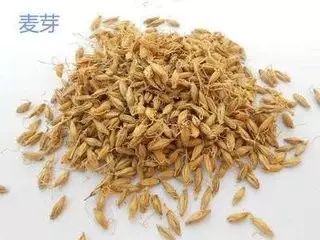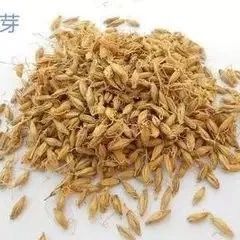Disease Inquiry, Health Guidance, Classic Health Preservation, No Need to Seek Help When Sick

Author Introduction: Hao Wanshan, born in November 1944, graduated from Beijing University of Chinese Medicine. Currently a professor and doctoral supervisor at Beijing University of Chinese Medicine. With 50 years of clinical practice, he emphasizes emotional regulation for patients and is particularly skilled in treating emotional disorders.
Qi deficiency is a term in Traditional Chinese Medicine (TCM) that refers to a series of pathological changes and syndromes caused by insufficient vital energy (yuan qi). Qi is the most fundamental substance in the human body, formed by the combination of the essence (jing) from the kidneys, the qi from the spleen and stomach that absorbs and transforms food, and the clear qi inhaled by the lungs. Qi deficiency generally refers to symptoms such as physical weakness, pale complexion, shortness of breath, fatigue in the limbs, dizziness, sweating upon exertion, and a weak voice. It includes the deficiency of yuan qi, zong qi, and wei qi, as well as a reduction in the functions of qi in promoting, warming, defending, consolidating, and transforming, leading to decreased functional activities of the body and weakened disease resistance.
Fundamentally, human life activities are movements of the rise and fall of vital energy. Qi deficiency is a common syndrome, often caused by congenital insufficiency, malnutrition, aging, prolonged illness, major surgery, and excessive fatigue. Clinically, qi deficiency also includes syndromes such as lung qi deficiency, heart qi deficiency, spleen qi deficiency, and kidney qi deficiency.
What Are the Manifestations of Qi Deficiency Constitution?
1 People with Qi deficiency generally have a dull complexion and poor physical strength Those with qi deficiency usually have a pale and lackluster complexion, sweat easily, and experience shortness of breath. In contrast, those with sufficient qi can climb several flights of stairs without issue, while those with qi deficiency may feel breathless after just three flights, with a rapid heartbeat. 2 People with Qi deficiency are taciturn and easily fatigued Individuals with qi deficiency tend to be quiet and reluctant to speak, unlike those with sufficient qi who are energetic and actively participate in activities and express opinions. Qi deficient individuals prefer to avoid trouble. What does being taciturn mean? It means that when you talk to them, they are reluctant to respond, and even a few extra words can tire them out. Qi deficient individuals also easily feel fatigued, often feeling tired after a short walk, while others do not. Additionally, they often seek support when standing or sitting, appearing listless. In contrast, those with sufficient qi stand and sit upright and speak with confidence. I once observed a martial arts star who truly embodied the saying “standing like a pine, sitting like a bell,” with a strong voice. 3 People with Qi deficiency are sensitive to cold and wind, and are prone to colds Qi deficient individuals are sensitive to cold and wind, easily catching colds, especially children. Some children may recover from a cold only to catch another after returning from kindergarten, causing concern for their families. This is actually a manifestation of qi deficiency. In summary, qi deficiency indicates insufficient kidney qi, spleen qi, and lung qi, with kidney qi being inherited from the mother and varying in fullness. Additionally, spleen qi is crucial; often, insufficient spleen qi leads to insufficient lung qi, making those with spleen qi deficiency more susceptible to external pathogens. 4 People with Qi deficiency easily experience abdominal bloating after eating
Individuals with qi deficiency often experience abdominal bloating after eating because their spleen struggles to transform food effectively, leading to food stagnation in the body and resulting in bloating.
5 People with Qi deficiency have loose stools
Those with qi deficiency find it difficult to form solid stools because their qi is insufficient to hold the stool, leading to easy slippage.
6 What does the tongue of a person with Qi deficiency look like? Individuals with tooth marks on their tongues are often qi deficient. The tongue of a person with qi deficiency often shows indentations from the teeth. Why? Because qi deficient individuals have a lot of dampness that has not been expelled from the body, which over time can lead to swelling of internal organs and skin, although this swelling is generally not visible. However, the swollen tongue, which is pressed against the teeth for 24 hours, will show many indentations when extended. A thick coating on the tongue indicates heavy internal dampness. Generally, a normal tongue coating should reveal the tongue body, but a certain type of coating can cover the entire tongue, obscuring the tongue body, which in TCM is referred to as a “full tongue coating,” indicating significant internal dampness. The thicker the coating, the heavier the internal dampness. In addition to a full coating, the thickness of the coating can also indicate the severity of internal dampness. A tongue with cracks in the middle indicates spleen and stomach qi deficiency. If the indentations on the sides of the tongue are not obvious, but the cracks in the middle are very pronounced (everyone has cracks in the middle of their tongue, but in normal individuals, these cracks are not obvious because the coating covers them, making them appear faint), and if they branch out into various forms, this indicates poor spleen and stomach function, with insufficient spleen qi unable to support the coating, leading to noticeable cracks. Qi deficient individuals often have a swollen tongue. Those with qi deficiency may have a swollen tongue (though some may have a thin tongue, but still show tooth marks, indicating spleen qi deficiency). A tongue without coating or with a very thin coating indicates qi deficiency, especially insufficient spleen and stomach qi. Individuals with this tongue appearance fall into two categories: one is those who have suffered a major illness affecting their spleen and stomach, leading to a loss of tongue coating. Such individuals primarily need to tonify the spleen and stomach; once the spleen and stomach are sufficient, the body will recover. The other category consists of those who have harmed their spleen and stomach due to improper diet, which is not a major illness. I once encountered a man whose tongue was completely smooth without coating. When I asked him, “How is your stomach qi so deficient?” he replied that he drinks heavily every day. How could his stomach not be harmed?
Maintenance Methods for Individuals with Qi Deficiency Constitution
For those whose stomach has been harmed leading to insufficient stomach qi, the immediate priority is to promote stomach qi. Therefore, one should not drink too much water; instead, drink barley tea, which can help promote stomach qi.

Formula: Raw barley (Sheng Mai Ya) 30-60 grams. Method: Brew as tea. Note: 1 Be sure to use raw barley, which has the function of promoting stomach qi. Do not use roasted barley, as it lowers qi, while raw barley raises qi. Some experienced TCM practitioners, when encountering severely ill patients with no tongue coating, will prescribe barley tea to help quickly promote stomach qi until the coating returns, indicating recovery. 2 You can also use 3 grams of raw astragalus (Huang Qi), 6 grams of Chinese yam (Huang Shan Yao), and 9 grams of raw barley, boiled in water as a tea substitute. Consistent consumption over several weeks is also beneficial for promoting stomach qi.
The above is for reference only; please consult a physician for guidance.

Method for Disease Inquiry:
Turn your phone horizontally to view
Note:Typographical errors, traditional characters, and space inputs are invalid; clicking the table is ineffective!
| Disease Inquiry Table | |||
| A | Cancer | ||
| B |
Rhinitis |
Kidney Tonification |
Qi Tonification |
|
Blood Tonification |
Constipation |
White Hair |
|
|
Calcium Supplementation |
Tonsillitis |
Spots | |
| Nasopharyngeal Congestion | Vitiligo | Back Diagnosis | |
| Nosebleed | Flat Warts | Cataract | |
| Menstrual Irregularities | Blood in Stool | ||
|
C |
Enteritis |
Dementia | Cramps |
| Acne | |||
|
D |
Shingles |
Snoring |
Hiccups |
|
Night Sweats |
Low Blood Pressure |
Cholesterol |
|
| Sitting Meditation | Acne | Night Sweats | |
| Cholecystitis | Gallstones | Frostbite | |
| Epilepsy | |||
|
E |
Tinnitus | Deafness | |
| Pediatrics | |||
| F | Fever | Diarrhea | Gynecology |
| Breast Enhancement | Rheumatism | Buffalo Hump | |
| Acid Reflux | Floaters | ||
| G | Cold | Hypertension | Hyperlipidemia |
| Hyperglycemia | Hyperuricemia | Menopause | |
| Bone Hyperplasia | Osteoporosis | High Fever | |
| Liver Disease | Anal Fissure | ||
| H | Onychomycosis | Body Odor | Synovitis |
| Throat Issues | |||
| J |
Spleen Strengthening |
Beriberi |
Stones |
|
Varicose Veins |
Amnesia |
Cervical Spondylosis |
|
|
Shoulder Pain |
Tendinitis |
Thyroid Issues |
|
|
Corn |
Paronychia |
Hangover Relief |
|
|
Smoking Cessation |
Memory Issues |
Cracked Heels |
|
| Indigestion | |||
|
K |
Cough | Oral Ulcers | Bad Breath |
|
Anti-Aging |
Dry Mouth and Throat | Angular Cheilitis | |
| L | Alzheimer’s Disease | Age Spots | Stiff Neck |
| Stretching | Chronic Bronchitis | Helicobacter Pylori | |
| M | Beauty | Facial Diagnosis | |
| N | Andrology | Frequent Urination | Urgent Urination |
| Psoriasis | Cerebral Infarction | Uric Acid | |
| O | Vomiting | Urethritis | |
| P | Skin Issues | Foot Soaking | Folk Remedies |
| Hemiplegia | Bladder Issues | Spleen Deficiency | |
| Rashes | Skin Itching | Patting Therapy | |
| Q | Prostate Issues | Blood Cleansing | Kidney Deficiency |
| Qi Deficiency | |||
| R | Breast Hyperplasia | Breast Cancer | |
| S | Insomnia | Dampness | Cold Hands and Feet |
| Dermatitis | Thin Waist | Thin Legs | |
| Heat Excess | Sore Throat | Peeling Hands | |
| Tongue Diagnosis | Hand Diagnosis | San Qi | |
| Food Issues | Heartburn | Cracked Hands | |
| T | Dizziness | Headache | Dysmenorrhea |
| Hair Loss | Leg Pain | Leg Cramps | |
| Dandruff | Gout | Diabetes | |
| W | Vulvar Itching | Stomach Bloating | Stomach Ulcer |
| Tennis Elbow |
|
X |
Pediatric Diseases |
Blood Vessels |
Thrombosis |
| Heart Disease | Knee Pain | Urticaria | |
| Asthma | Low Blood Pressure | High Blood Pressure | |
| Blood Lipids | Blood Sugar | Blood Deficiency | |
| Indigestion | Lower Limbs | Polyps | |
| Y | Pharyngitis | Toothache | Yellow Teeth |
| Loose Teeth | Liver Nourishment | Stomach Nourishment | |
| Hemorrhoids | Impotence | Dry Eyes | |
| Blurred Vision | Bone Nourishment | Dry Eyes | |
| Lumbar Disc | Back Pain | Muscle Strain | |
| Gum Bleeding | Anorexia | Motion Sickness | |
| Yin Deficiency | Vaginitis | ||
| Z | Premature Ejaculation | Fatty Liver | Stroke |
| Chinese Patent Medicine | Heel Pain | Cracked Heels | |
| Tumors | Wrinkles | Spontaneous Sweating | |
| Nails | Depression | Growth |
The above has no links; clicking is ineffective!
Inquiry content is continuously updated.

